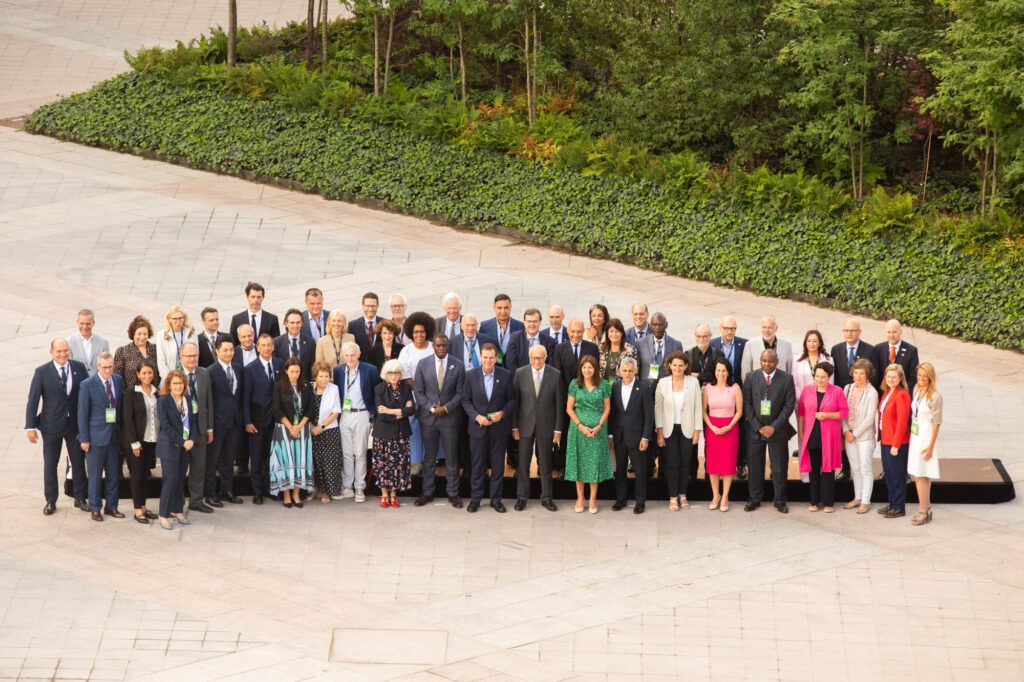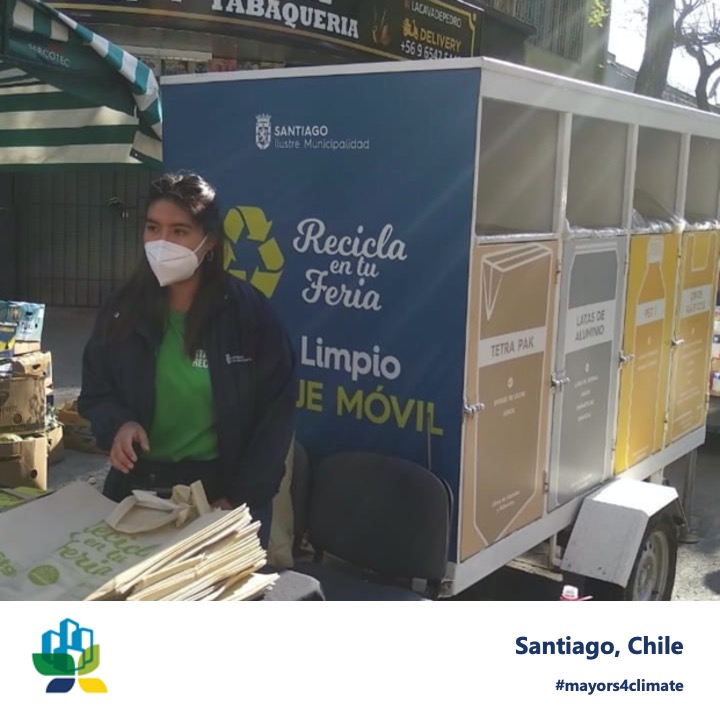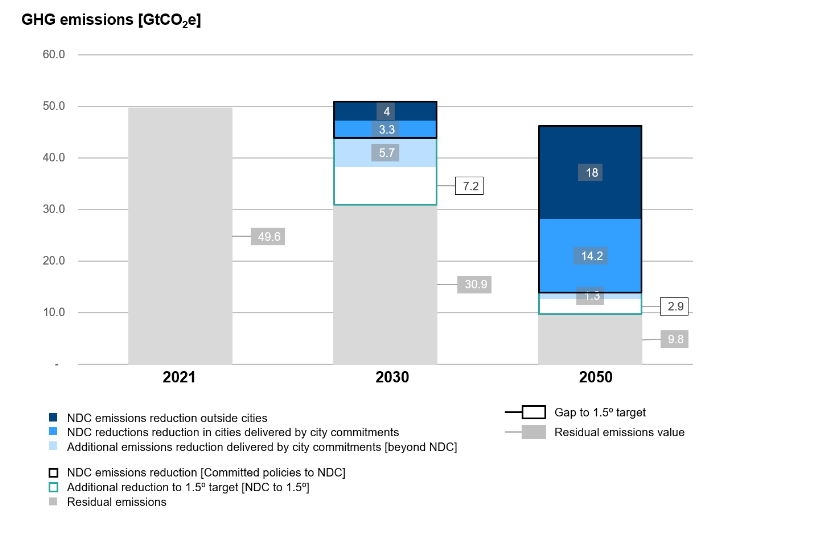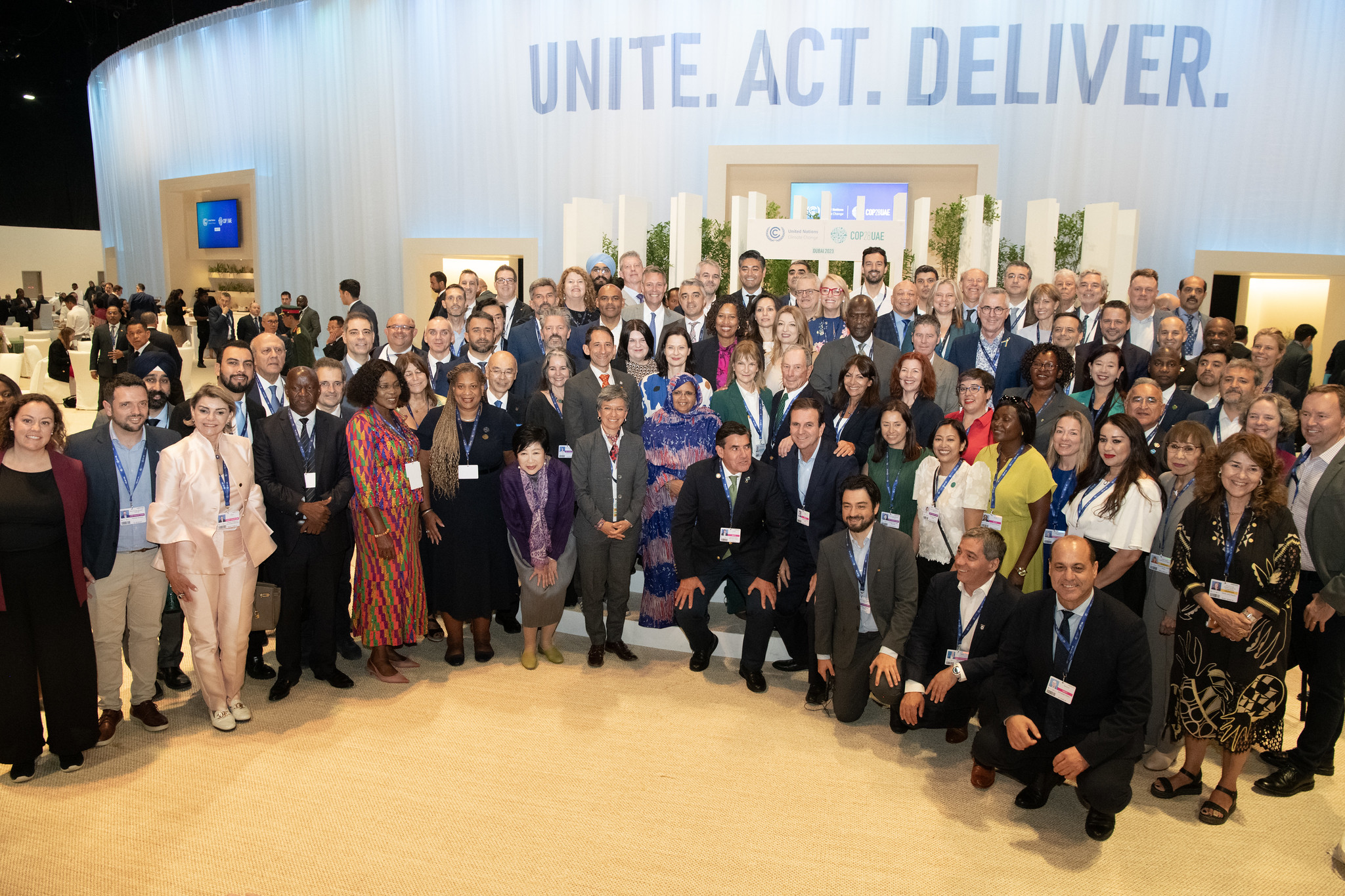New report “From Paris to Belém – A Decade of Local Climate Leadership” highlights the role of cities in scaling up national goals of emissions reduction and strengthening resilience
On the 10-year anniversary of the Paris Agreement, the Global Covenant of Mayors for Climate and Energy (GCoM) and the C40 Cities Climate Leadership Group have released a report that celebrates a decade of transformative action by cities and regions at the forefront of the fight against the climate crisis. As the world prepares for COP30 in Belém, a new landmark report launched on the 23rd of June, in Paris, tells the story of how local climate action is the new hope of the global climate movement, delivering real results: “From Paris to Belém: A Decade of Local Climate Leadership”.
The Paris Agreement in 2015 was a turning point for all 195 signatories: setting clear goals and pace to address the climate crisis. But its success has always relied on implementation – and that’s where cities step in. Over the past decade, local governments have moved beyond pledges, delivering results that improve lives, protect vulnerable populations, and advance climate justice.
This report captures their journey from ambitious targets to on-the-ground solutions, showing how mayors, local leaders and their city networks have translated climate promises into cleaner air, green jobs, resilient infrastructure, and inclusive communities.
Anne Hidalgo, Mayor of Paris, said:
“Ten years ago, in this very city, we made history. The Paris Agreement represented a global turning point, but it also marked the rise of a new kind of climate leadership: local, bold, and deeply rooted in the everyday lives of people. From the start, cities have shown that the climate crisis can be tackled in ways that create jobs, improve public health, enhance public services, and build stronger communities. The new report From Paris to Belém shows just how far we’ve come: what began as an ambitious gathering at Hôtel de Ville has grown into a global movement of more than 13,000 cities. As we look toward COP30 in Belém, we must reaffirm what the past decade has proven: empowering cities is not optional – it is essential to achieving the Paris goals.”
Report’s key features
Some of the highlights of the report “From Paris to Belém: A Decade of Local Climate Leadership” are:
- An analysis of city-level climate commitments and NDCs reveals that in CHAMP-endorsing countries, a set of cities have set short term targets that, if achieved, would close 37% of the gap between current NDCs and a Paris-aligned emissions reduction trajectory.
- More than 13.700 cities and regions are actively planning and delivering ambitious climate strategies in support of the Paris Agreement through the Global Covenant of Mayors for Climate and Energy (GCoM) and the Under2 Coalition.
- C40’s cities, almost 100 of the world’s major cities, reduced per capita emissions by 7.5% between 2015 and 2024.
- Cities have disclosed over 2.500 climate projects worth $179 billion requiring investment – proof of ready-to-scale solutions.
- Local action is accelerating through clean transportation, nature-based solutions, waste management, just transitions, urban resilience, and inclusive finance.
- The CHAMP Coalition, now backed by 75 national governments, is embedding subnational climate leadership into global policy frameworks – including renewed national climate plans from Brazil, United Kingdom, United Arab Emirates, Kenya and others.
Andy Deacon, Global Covenant of Mayors for Climate & Energy (GCoM) Co-Managing Director, said:
“The Paris Agreement redefined global climate ambition a decade ago. Today, cities stand at the forefront of turning that ambition into action. As we look ahead to COP30 in Belém, the report makes it clear that local governments are not just on the frontlines of the climate crisis – they are leading the charge. Cities are where climate action becomes real: where policies turn into cleaner air, new jobs, and safer, more resilient communities. This decade of local leadership has laid the foundation. We must now match it with the financing and support needed to scale solutions and secure a just, sustainable future for all.”
From commitment to implementation – and beyond
This decade has seen the rise of multilevel governance as a powerful enabler of climate progress. This means that climate objectives and strategies developed through collaboration between national and local governments are increasingly seen as the most effective way to turn global goals into tangible, real-world impact in communities and people’s lives. Since COP28 in Dubai at the end of 2023, 75 nations of the CHAMP coalition are at the forefront of this movement – many having already revised their national strategies (Nationally Determined Contributions, or NDCs) with stronger content from subnational governments – and the movement is gaining traction with discussions at the Bonn climate negotiations (June 2025) exploring how to more formally & effectively involve subnational leaders in the negotiations.
The next step to scale up local action is access to finance towards urban climate action. COP30 in Belém will be a critical turning point to unlock the resources, partnerships, and political will needed to bring proven local solutions to the global scale.
Mark Watts, C40 Cities Executive Director, said:
“Cities have long been on the frontlines of the climate fight—setting bold, science-based targets and slashing emissions for over a decade. This report is a testament to what’s possible with city-led and people-centered climate action. Now, it’s time for cities and national governments to unite and accelerate the pace. COP30 must be the turning point—mobilizing the finance cities urgently need to drive faster, fairer climate solutions. C40 is working to support the COP30 Presidency in its commitment to shift from negotiation into action.”
As we reflect on the journey from Paris to Belém, the report is both a celebration and a call to action. The message is clear: the future of climate action is local, and cities are not just participants, they are mission-critical partners. Now, with COP30 on the horizon, the world must invest in their leadership and accelerate the transition to a just, resilient, and climate-safe future.



